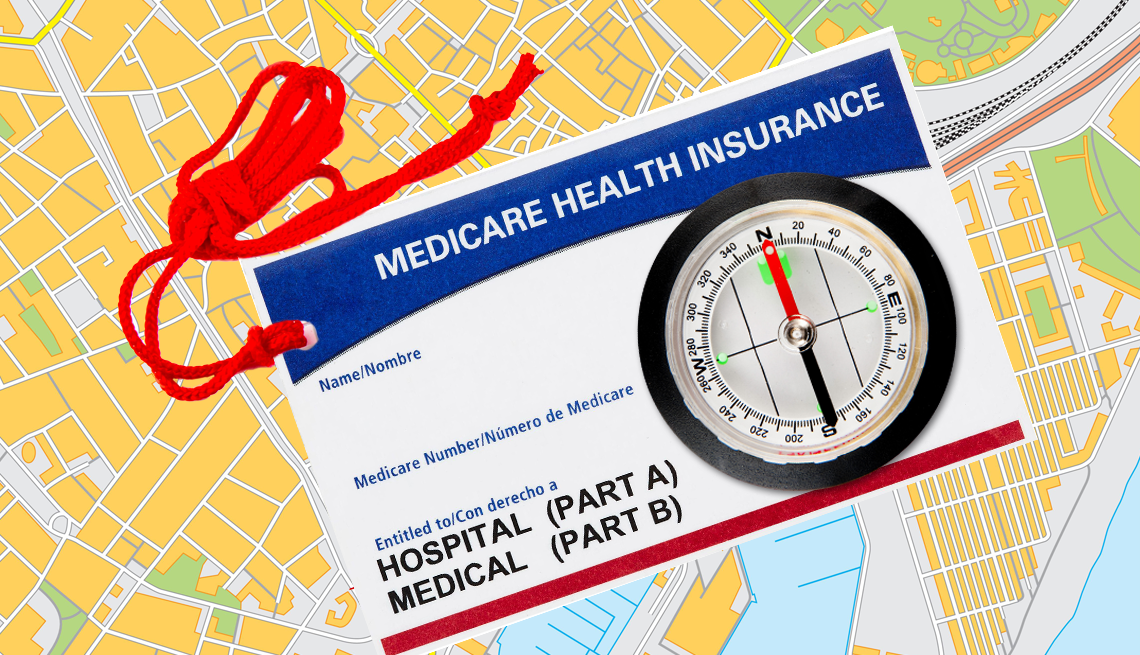AARP Hearing Center


Key takeaways
• Medicare is a challenge, and caregivers have to learn quickly.
• Access to records and online Medicare account is important.
• The Medicare handbook and some preventive care are free.
• Open enrollment gives a chance to reassess coverage.
• Programs help with chronic conditions, caregiver training, financial aid.
• Coverage has limitations. But denials can be appealed; hospice care is included.
• One-on-one assistance is available.
when you’re making your own health care decisions, but it has an extra layer of complexity when you’re trying to help a sick or aging relative navigate the system.
Genesis Brown, a certified adult gerontology nurse practitioner in Falls Church, Virginia, often sees family members who suddenly become unpaid caregivers after their loved one is discharged from the hospital or diagnosed with a chronic condition.
“They will need follow-up care, medication management and care navigation,” she says. “Caregivers are being thrust into this new environment. It’s overwhelming for families.”
‘As a caregiver, you’re always on the defense’
If you find yourself in this club of about 38 million people, you’ll quickly need to learn how to provide care, navigate Medicare and become your loved one’s advocate — even if you’re not of Medicare age yourself.
“As a caregiver, you’re always on the defense, making sure [your] mother is being served well,” says Jessica Guthrie of Fredericksburg, Virginia. Guthrie, who has been caring for her mother, Constance, for 10 years, moved from Texas to Virginia as her mother’s caregiving needs increased because of Alzheimer’s disease. “Twenty-four hours a day my brain is thinking about navigating the system for my mom,” she says.
Guthrie was only 26 when she started providing care for her mother. “I have put my life on hold in many ways, but you only get one mom, and I’m grateful to pour into her what she did for me,” she says.
Beyond determining what Medicare covers and doesn’t cover, as a new caregiver, you need to know how to:
- Pick the best Part D or Medicare Advantage plan each year.
- Appeal a denied claim.
- Qualify for financial assistance.
- Take advantage of extra coverage for chronic conditions or support for caregivers.
But your knowledge about Medicare shouldn’t end there. Here are a dozen tips for getting the best coverage for your loved one’s growing health care needs.
1. Make sure Medicare has permission to talk with you
Medicare can’t share claim or billing information with caregivers unless they have authorization from the Medicare beneficiary. Make sure your loved one fills out Medicare’s Authorization to Disclose Personal Health Information form.
If a Medicare recipient is unable to sign the form, a personal representative can sign if authorized legal documents, such as a power of attorney, are attached.
Keep in mind that Medicare authorization is different from the paperwork needed to make medical decisions on someone’s behalf. For that, you need a health care power of attorney, also called a health care proxy.
2. Get access to your loved one’s online Medicare account
An online Medicare account is a great resource for personalized information about Medicare coverage, claims and costs. You can review claims as soon as they’re processed rather than waiting for the quarterly Medicare Summary Notice (MSN).
That can help you identify claims problems or potential Medicare fraud. Account information may include eligibility for preventive benefits and a list of drugs taken regularly, which can give you a head start when comparing Part D prescription drug plans during open enrollment.































































More on Medicare
10 Steps to Take After You Sign Up for Medicare
Just enrolled? You can put your new Medicare coverage to good use
States With Paid Family Leave Laws to Help Caregivers
States With Paid Family Leave Laws to Help Caregivers
25 Ways to Find a Greater Sense of Purpose
Use our topical advice to elevate your curiosity, plan your third act and expand your horizons
Recommended for You